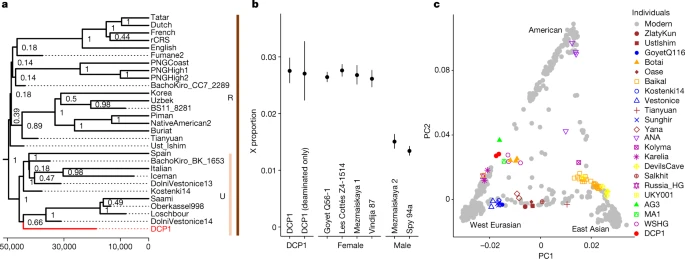Jovialis
Advisor
- Messages
- 9,313
- Reaction score
- 5,878
- Points
- 113
- Ethnic group
- Italian
- Y-DNA haplogroup
- R-PF7566 (R-Y227216)
- mtDNA haplogroup
- H6a1b7
Despite the fact that the past 11 years of population genetic breakthroughs have informed us that we are divergent inter-species amalgamations, apparently there is only one "race"?
But trying to describe more finer-scaled analysis of populations as even sub-divisions (insert preferred nomenclature) is pseudo-science? Or a dog whistle for racism?
I always hear that the differences are very slight, 0.1% between other humans. But to me, that doesn't seem like a compelling argument considering we're 98.8% genetically similar to chimps. So 0.1% in that relative difference seems like a lot actually. Especially considering we are 60% related to bananas and fruit flies.
Just like in dealing with code, even if one symbol is different in millions of lines of syntax, that operation WILL fail. It seems like even very slight difference in DNA have massive implication, when looking at whole species.
But trying to describe more finer-scaled analysis of populations as even sub-divisions (insert preferred nomenclature) is pseudo-science? Or a dog whistle for racism?
I always hear that the differences are very slight, 0.1% between other humans. But to me, that doesn't seem like a compelling argument considering we're 98.8% genetically similar to chimps. So 0.1% in that relative difference seems like a lot actually. Especially considering we are 60% related to bananas and fruit flies.
Just like in dealing with code, even if one symbol is different in millions of lines of syntax, that operation WILL fail. It seems like even very slight difference in DNA have massive implication, when looking at whole species.




